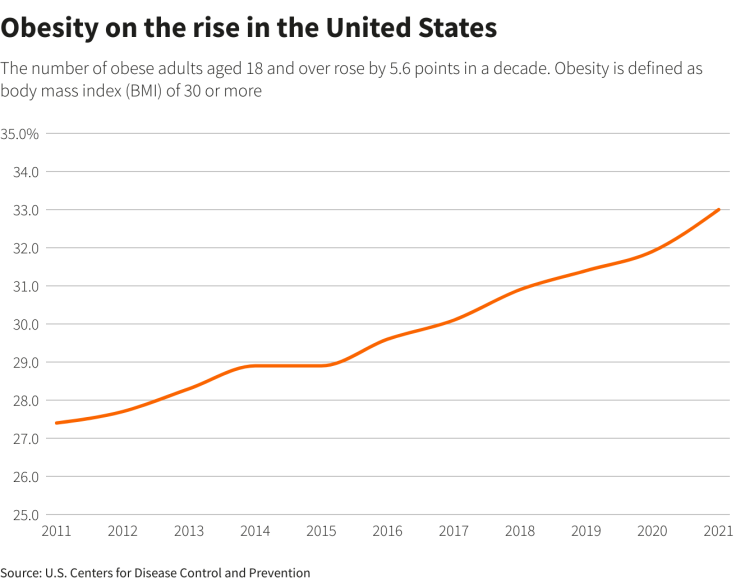Austrian study shows that obesity can increase risk of mental disorders
A recent study from the Medical University of Vienna shows that obesity significantly increases the risks of developing mental disorders.

A recent study conducted by Complexity Science Hub and the Medical University of Vienna has found that obesity can significantly increase the chances of developing mental disorders later in life, which applies to all age groups, with women shown to be at a higher risk than men for most diseases. The results of the study were published in the specialist journal Translational Psychiatry.
According to Elma Dervic, a researcher for the Complexity Science Hub, the researchers analysed a population-wide national registry of inpatient hospitalisations in Austria from 1997 to 2014. This allowed them to determine the relative risks of obesity and identify significant sex differences.
Consequently, based on the results of their findings, the researchers found that an obesity diagnosis significantly enhances the likelihood of developing mental disorders across all age groups, ranging from depression, anxiety, psychosis, schizophrenia, eating disorders, nicotine addiction and personality disorders.
Michael Leutner, professor of medicine, endocrinology and metabolism at the Medical University of Vienna, commented on these results, saying: "From a clinical point of view, these results emphasise the need to raise awareness of psychiatric diagnoses in obese patients and, if necessary, to consult specialists at an early stage of diagnosis."
The research into obesity diagnoses allowed the team to determine whether or not there were trends and typical patterns that appeared in disease occurrence. Dervic commented: "In order to find out which illness typically appeared prior and subsequently to the obesity diagnosis, we had to develop a new method."

In the case of all co-diagnoses, with the exception of the psychosis spectrum, obesity was found, in all likelihood, to be the first diagnosis made prior to the manifestation of a psychiatric diagnosis. However, whether obesity directly affects mental health, or whether the early stages of psychiatric disorders are insufficiently recognised has yet to be ascertained.
Alexander Kautzky from the Department of Psychiatry and Psychotherapy at the Medical University of Vienna explains: "Until now, physicians often considered psycho-pharmacological medications to cause the association between mental disorders and obesity as well as diabetes. This may be true for schizophrenia, where we see the opposite time order, but our data does not support this for depression or other psychiatric diagnoses."
During their analysis, the researchers found compelling gender differences for most of the disorders, with women showing an increased risk for developing all disorders, apart from schizophrenia and nicotine addiction. Whilst over 16 per cent of men were also shown to suffer from nicotine abuse disorders, this was only the case for approximately 8 per cent of women.
However, these results differed significantly when it came to depression. The rate of depression diagnoses was roughly three times higher in 13 per cent of obese women than in six per cent of obese men, who were considered to be twice as likely of being affected by depression.
Today, obesity is a highly prevalent disease that affects millions of people, and according to the World Health Organisation, worldwide obesity has nearly tripled since 1975. In 2016, more than 1.9 billion people over the age of 18 were considered overweight – of these 1 billion, over 650 million were diagnosed as being clinically obese.
The Austrian researchers concluded that obesity often proceeds severe mental disorders, which just serves to underline the importance of targeting the risk factors for health problems of all kinds. For this reason, thorough screening for obese patients with mental health problems should be considered of vital necessity, in order to facilitate prevention and ensure that the appropriate treatment is provided, as also suggested by the researchers.
© Copyright IBTimes 2024. All rights reserved.






